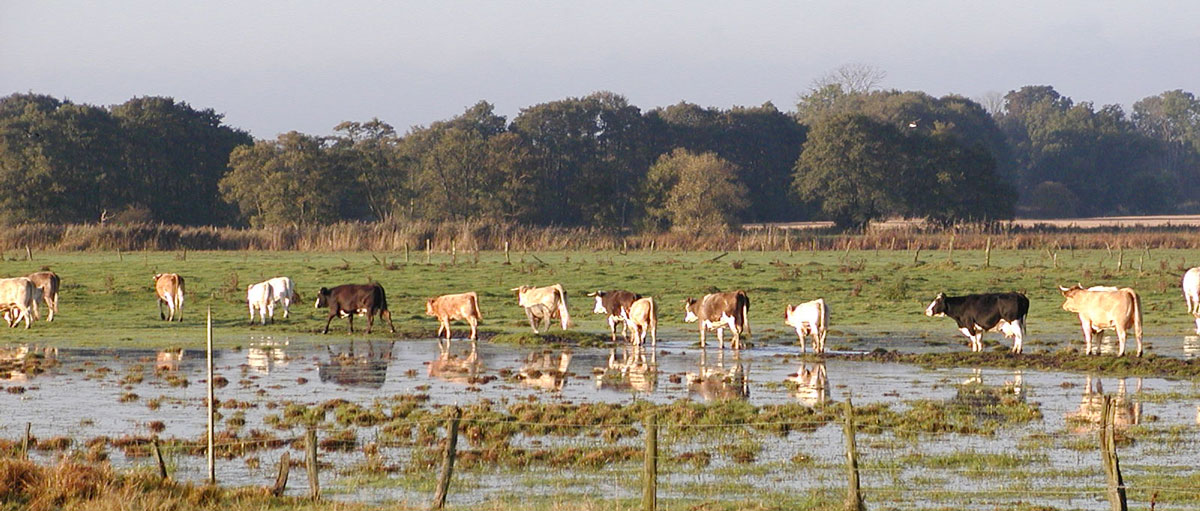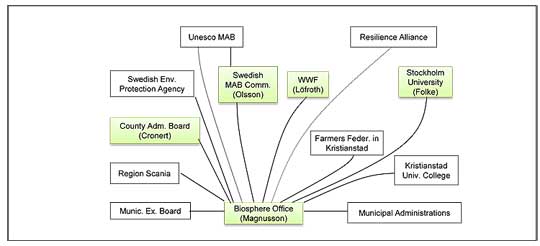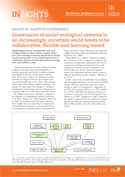Insight #3 Adaptive governance

Governance of social-ecological systems in an increasingly uncertain world needs to be collaborative, flexible and learning-based.
Adaptive governance of social-ecological systems is about connecting actors and institutions at multiple organisational levels to enable ecosystem stewardship in
the face of uncertainty and surprise.
These actors tend to be connected in social networks (see figure below for an example) and can provide leadership, trust, vision, and meaning in ways that help manage conflicts, anticipate and prepare for uncertainty and change or transform management organisations toward a learning environment (Folke et al. 2005, Boyd and Folke 2012).
Adaptive governance of interdependent social and ecological systems is key to address complex interactions and to manage uncertainty and periods of change.
A central characteristic of such adaptive governance is collaborative, flexible and learning-based issue management across different scales.
Key findings
1. Adaptive governance provides guidance for understanding connectivity between features of resilience, dynamic change, processes and outcomes.
2. The processes of adaptive governance require an arena/platform to bridge sectors and organizational levels.
3. Adaptive governance coordinates different types of networks.
4. Network structure affects adaptive governance processes.
5. Legitimacy and accountability of self-organised governance networks can be constructed in different ways.
6. Abrupt change requires a different theoretical analysis.
7. Adaptive governance can operate in a global context.









